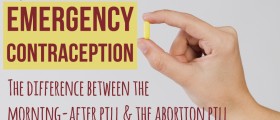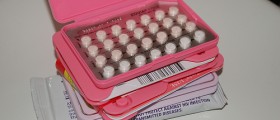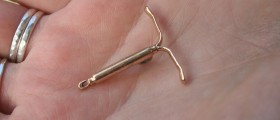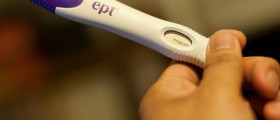
Emergency Contraception Prevents Unwanted Pregnancy
Emergency contraception or birth control pills after sexual intercourse are medications which prevent unwanted conception from taking place. This is a highly efficient means of protection against unwanted pregnancy in case a condom breaks or when a diaphragm/cervical cap slips out of place during the intercourse. Emergency contraception is additionally recommended in victims of a sexual assault. So this protective measure is practically indicated in any case when undesirable pregnancy might occur.
Many people known emergency contraception under the name the morning-after pill because it is supposed to be taken the day after the unprotected intercourse. Still, today there are several such medications available which may be taken even after a few days. The sooner the pill enters the body, the better are the chances the pregnancy will be prevented.
Apart from the drugs, in the USA the term emergency contraception additionally refers to the Copper T380 intrauterine device (IUD). This is a T-shaped device inserted into the woman's uterus up to 5 days after the risk intercourse. The device is actually used for regular contraception but is also efficient against pregnancy associated with the aforementioned accidents.
Women in general should think in advance and opt for regular contraception instead of frequently using emergency contraception. The risk of unwanted pregnancy is higher when the intercourse takes place within the few days before or after ovulation. This form of contraception is never recommended if a woman is trying to conceive.
Effects of Emergency Contraception on Pregnancy
It is essential to understand that emergency contraception cannot do much if the pregnancy has already occurred. However, it is a powerful tool against conception due to high doses of certain female hormones which are also normally found in regular contraceptive pills. Now, the dose of these hormones is higher but there are only two pills which are taken in 2 doses, 12 hours apart. The greatest power of the pills is observed if these are taken within 72 hours after the risky intercourse. If this is achieved, the chances of pregnancy prevention are up to 75%.
The dose of the hormones in the pill depends on the brand. It is best to consult with your gynecologist who will choose the best birth control pill for you.
Any Side Effects of Emergency Contraceptives
As it is the case with any other drug people, especially women who are supposed to take emergency contraceptive pill may be worried about potential side effects of the drug.
Even though in the majority of cases the morning after pill is well tolerated, some women may experience nausea and even vomit soon after taking the pill. These adverse effects can be prevented with Dramamine, the drug available over-the-counter. It is supposed to be taken half an hour prior to the emergency contraceptive pill. If nausea persists and vomiting cannot be controlled, one is due to consult the health care provider instantly.
Furthermore, there are cases when emergency contraception precipitates headaches, cramps and fatigue.
Fewer side effects occur if progestin-only pills are taken compared to pills that consist of a combination of hormones.
As for intrauterine device, there is always a risk of damaging the uterus during the process of insertion. Infection and bleeding may occur as well. But since the procedure is generally performed by well-experienced doctors, there is no worry any side effects will occur. After insertion women may complain about occasional cramps or even experience heavy bleeding during periods, both of which are indications for device removal.
After taking the pill the period might occur sooner than expected or even later than normal. In most cases monthly bleeding takes place within 7 days of the expected date. Women should be prepared since the following period can be heavier, lighter or even more spotty than the regular one. Lack of period is a sign of potential pregnancy. It can be confirmed with a pregnancy test but in such case it is best to pay a visit to the gynecologist.
One of the frequent question regarding birth control pills in general, including emergency birth control is whether they can trigger birth defects. The answer is no according to various studies which included pregnant women who were aware of their pregnancy but kept taking the pills. So, there is no risk of birth defects if one takes birth control pills no matter if they are regular or emergency.
Also, it is clear that if pregnancy occurs, emergency contraceptive pill is taken long before the organs of the fetus actually start to develop making birth defects practically impossible.
All in all, emergency contraception is one of many wonders of medicine which prevents unwanted pregnancy and at the same time poses no threat to the woman of even the baby (if conception has taken place). The pills are the most potent if taken within determined period of time. If a woman does not know which morning after pill to opt for, she should consult her gynecologist.

















Your thoughts on this
Loading...